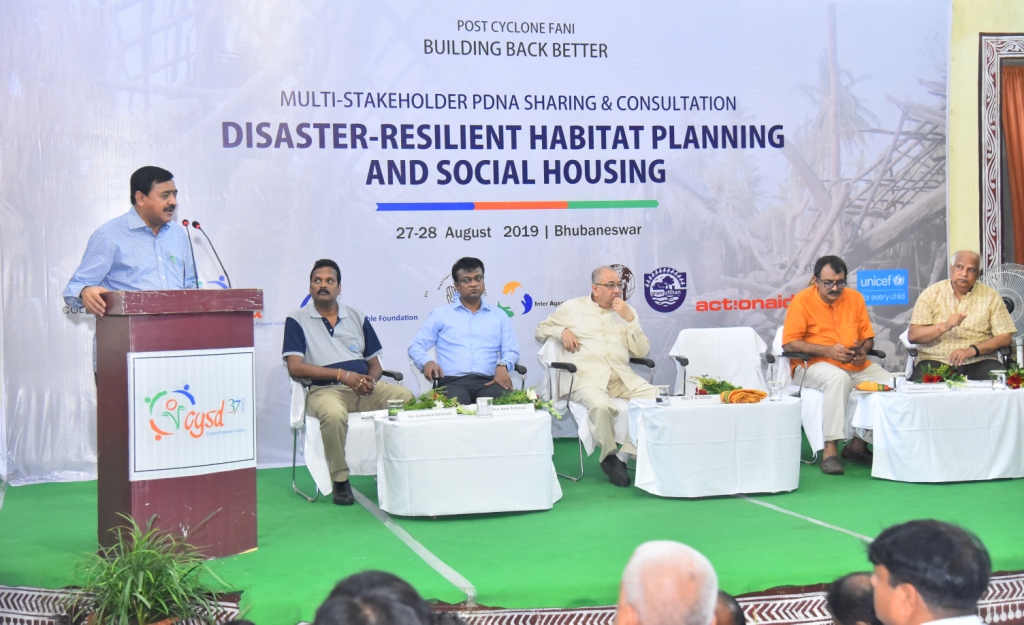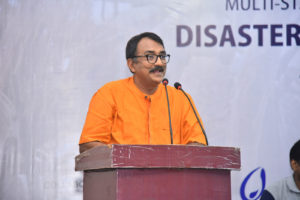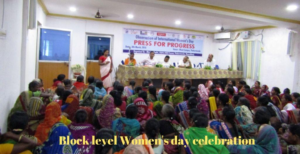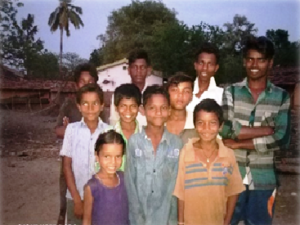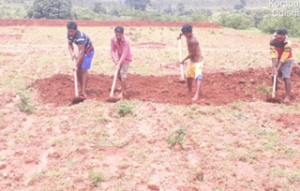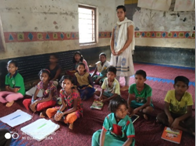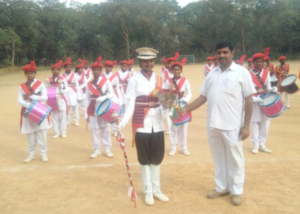‘Dhangadaguda’ no more suffers from Potable Water
Unity is power. This has been proven in Dhangadaguda village of Nayakguda Panchayat in Mathili block of Malkangiri district. The whole community came together to face the challenge of improving the condition of sanitation, hygiene and drinking water and ultimately succeeded in their mission. This was possible only through their sheer commitment, strong will power and determination.
The drinking water and sanitation scenario is grim in Odisha, with 94% of rural villages do not have access to potable water sources and sanitation coverage is less than 1%. This has resulted in 80% of rural people being affected by diseases due to dirty and polluted water, coupled with improper sanitation. To address this issue, the government has constructed IHHL for each household but the problem remains unchanged. It would be wrong to assume that construction of a toilet in every house can curb the open defecation issue. People prefer to defecate in the open field despite having latrines in their houses due to insufficient water.
Dhangadaguda village was no exception and suffering from the same problem. The village comprises of 180 households with a total population of 165. The primary source of income is agriculture and daily wage labour.
The villagers of Dhangadaguda had to take bathe in a small stream and fetch drinking water from 3 tube wells, which dried up in the summer. Open defecation was a common phenomenon and the ponds being used for cleaning & washing purpose. Ponds were also used for washing of animals. All these activities resulted in severe health problems for the villagers. Waterborne diseases, such as diarrhea, scabies and vomiting were prevalent. Every householder was provided with toilets under the Swachh Bharat Abhiyan scheme but people misused it either for poultry shed or fuel-wood shed due to insufficient water.
With the intervention of CYSD in Dhangadaguda, the villagers discussed their major issues, like poor sanitation and drinking water with the Project team. The village women had no other way than waiting for hours to get drinking water from the tube wells. Even, they were unable to prepare food in time and send their children to school on time. “Many a time, while we were waiting in queue to fetch drinking water, our curry on chulah got burnt,” said Radhika Gore, a villager.

In this context, several meetings were organized with village households to find a permanent solution for the drinking water problem. The project team made a condition with the villagers that CYSD will support them in facilitating drinking water provided each family would use their individual toilets supported by the government and keep the village neat and clean. The villagers were agreed to the condition, following which a village water and sanitation committee (VWSC) was formed. Simultaneously, the VWSC was insisted to create a corpus fund by collecting Rs. 40/- per month from each family and the money to be deposited in the Bank Account of VWSC.
CYSD supported for installation of an automatic solar dual water pump and a water tank of 5000 liter capacity. The total project cost was Rs 3, 94, 800/-, the people provided labour contribution and built a barricade around the water tank for its safety and security. After completion of the project in October 2017, the villagers have been getting potable water near their home through two water supply stand posts. Water quality sample check-up is being done periodically by the RWSS representative with the support of a volunteer and monitored by VWSC members.

It is observed that in due course a sense of dignity has enhancement among the villagers. The villagers became quite aware of their village cleanliness – sanitation and hygiene. They continued keeping the village roads and household backyards clean using dust bins. The villagers, particularly women have proper privacy for washing and bathing. Their daily drudgery burden of fetching water has reduced substantially. They are getting time to make their children ready for school.
The water tank in the village has become a symbol of dignity and pride for them. Besides, the villagers could mobilize required funds for construction of a community hall from Panchayat Samiti The hall is being used for the functioning of village youth club. Moreover, the villagers are in the process of declaring their village as Open Defecation Free village in the coming year. In this regard, villagers have taken vow to construct shock pit for their individual latrines. Indeed, Dhangadaguda has become a model village and eye-opener for the neighboring villages in tribal block of Mathili.

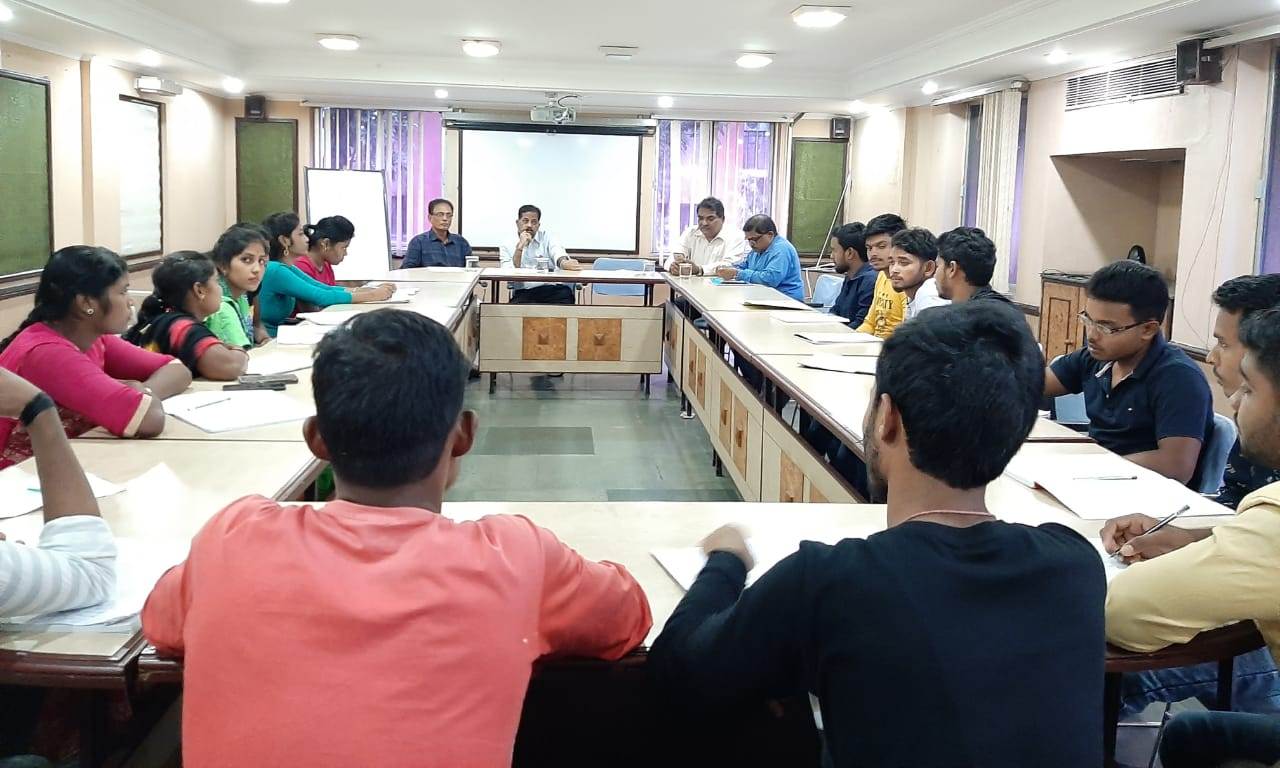
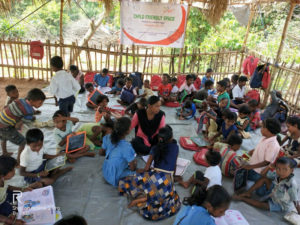
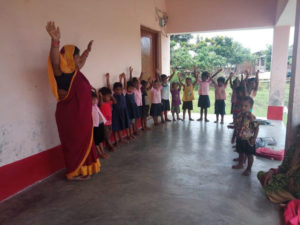 The purpose of CFS is to support the resilience and well-being of children through structured activities conducted in a safe and child-friendly environment. The primary participants of CFSs are children (3-18 years of age). These spaces will prepare children to go to the formal education system after a certain temporary period. The main activities conducted at CFS are designed in harmony with the local culture like, Playing, Drawing, Painting and Storytelling for children; Provision of play kits, first-aid kits, safe drinking water, learning materials for children; Health check-up, immunization and Nutritious food supplies; conducting sessions on confidence-building and drawing out children from stress; parents counselling and Trauma counselling of children. For this, community institutions and community-based organizations, especially the women groups & Anganwadi Workers are closely involved in monitoring the CFSs.
The purpose of CFS is to support the resilience and well-being of children through structured activities conducted in a safe and child-friendly environment. The primary participants of CFSs are children (3-18 years of age). These spaces will prepare children to go to the formal education system after a certain temporary period. The main activities conducted at CFS are designed in harmony with the local culture like, Playing, Drawing, Painting and Storytelling for children; Provision of play kits, first-aid kits, safe drinking water, learning materials for children; Health check-up, immunization and Nutritious food supplies; conducting sessions on confidence-building and drawing out children from stress; parents counselling and Trauma counselling of children. For this, community institutions and community-based organizations, especially the women groups & Anganwadi Workers are closely involved in monitoring the CFSs.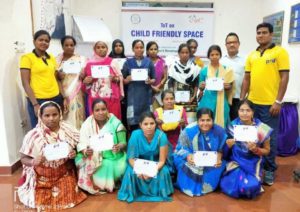 In order to enhance the coaching skill capacity of Anganwadi Workers, a 2-day “Trainers’ Training (ToT) on Child-Friendly Space” was organized in association with Pro Sport Development (PSD). A total of 19 women Anganwadi Workers of various villages of Krushna Prasad block participated in the programme. The training was part of the Fani rehabilitation program, especially for children and adolescents. The Anganwadi Workers were provided exposure to sports-based learning and facilitation skills for young children.
In order to enhance the coaching skill capacity of Anganwadi Workers, a 2-day “Trainers’ Training (ToT) on Child-Friendly Space” was organized in association with Pro Sport Development (PSD). A total of 19 women Anganwadi Workers of various villages of Krushna Prasad block participated in the programme. The training was part of the Fani rehabilitation program, especially for children and adolescents. The Anganwadi Workers were provided exposure to sports-based learning and facilitation skills for young children.
